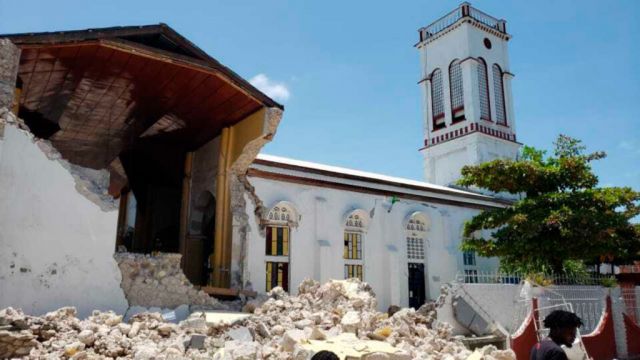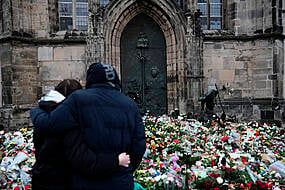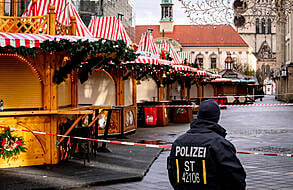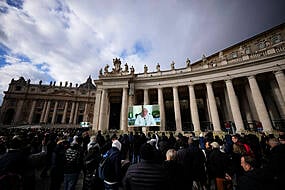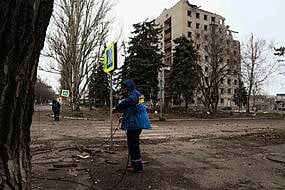At least 29 people were killed when a 7.2 magnitude earthquake struck Haiti on Saturday, just days before a tropical storm is expected to make landfall.
Prime Minister Ariel Henry said he was mobilising all available government resources to help victims in the affected areas.
The epicentre was about 78 miles west of the capital of Port-au-Prince, the US Geological Survey said.
Jerry Chandler, Haiti’s director of civil protection, said that the death toll stood at 29 and that teams will be sent to the area for search and rescue missions.
Mr Henry said on Twitter that the ″violent quake″ had caused loss of life and damage in various parts of the country, and also appealed to Haitians to unify as they ″confront this dramatic situation in which we’re living right now”.
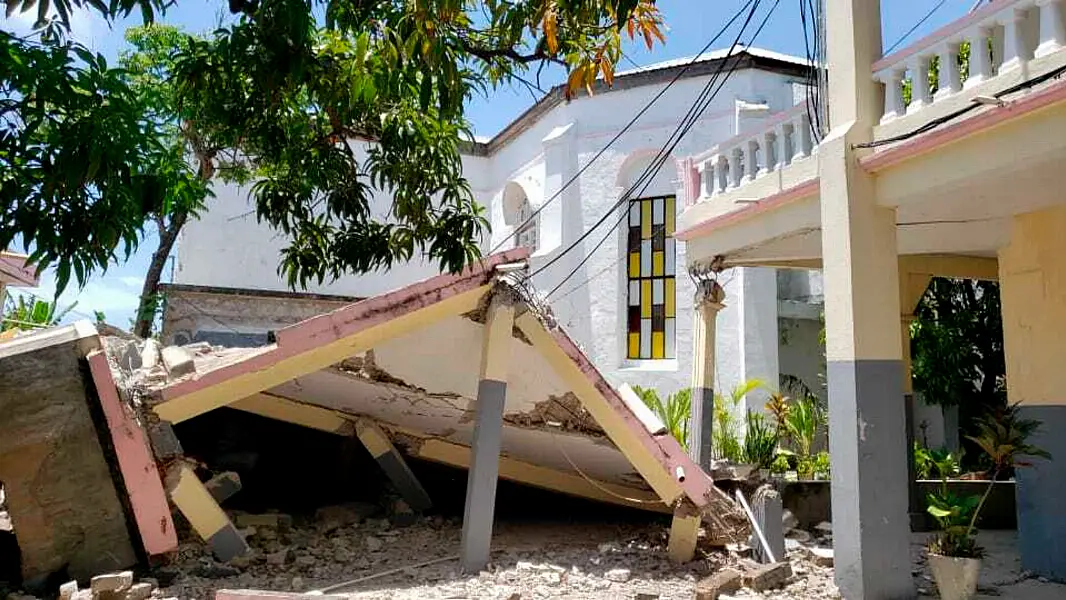
He declared a one-month state of emergency for the whole country. At a press conference, he said he would not ask for international help until the extent of the damage is known.
Videos posted to social media showed collapsed buildings near the epicentre and people running into the streets.
People in Port-au-Prince felt the tremor and many rushed into the streets in fear, although there did not appear to be damage there.
Naomi Verneus, a 34-year-old resident of Port-au-Prince, said she was jolted awake by the earthquake and that her bed was shaking.
“I woke up and didn’t have time to put my shoes on. We lived the 2010 earthquake and all I could do was run. I later remembered my two kids and my mother were still inside. My neighbour went in and told them to get out. We ran to the street,” Ms Verneus said.
The impoverished country, where many live in tenuous circumstances, is vulnerable to earthquakes and hurricanes.
It was struck by a magnitude 5.9 earthquake in 2018 that killed more than a dozen people, and a magnitude 7.1 quake that damaged much of the capital in 2010 and killed an estimated 300,000 people.
The National Hurricane Centre has forecasted that Tropical Storm Grace will reach Haiti late Monday night or early Tuesday morning.
The earthquake struck more than a month after president Jovenel Moise was killed, sending the country into political chaos, and humanitarian aid groups said the earthquake will add to the suffering.
“We’re concerned that this earthquake is just one more crisis on top of what the country is already facing – including the worsening political stalemate after the president’s assassination, Covid and food insecurity,” said Jean-Wickens Merone, spokesman for World Vision Haiti.
Catholic priest Fredy Elie, who began working with the Mission in Haiti Congregation after the 2010 earthquake, told The Associated Press that access to the area is hindered by criminal gangs and was pleading for help.
“It’s time to open the road to those who want to help – they need help from all of us,” he said.
